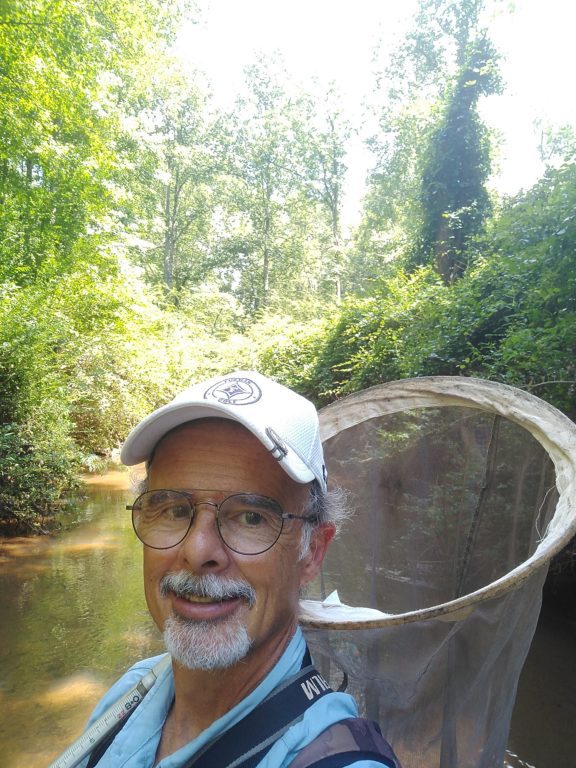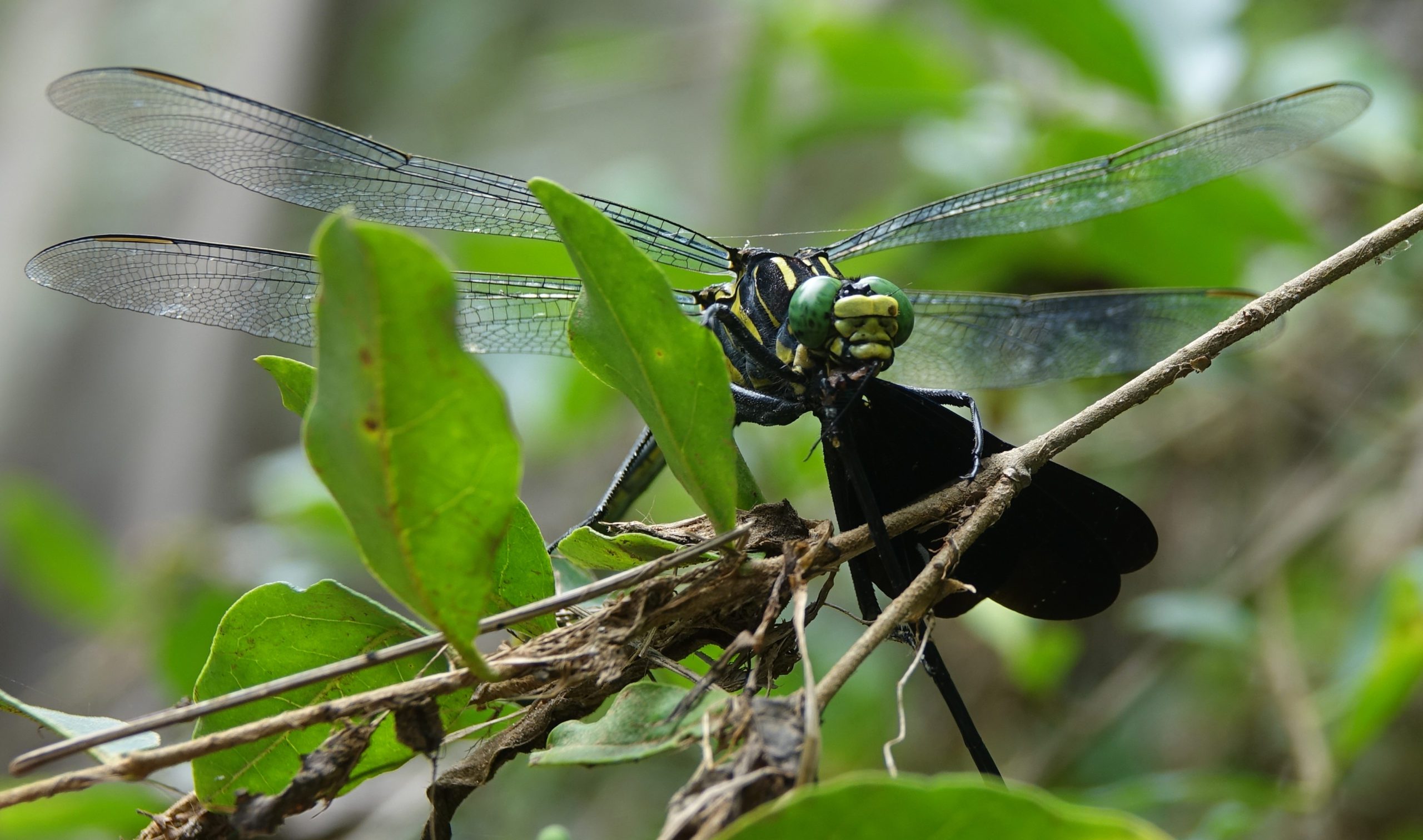By Amanda Cordle, August 2021
For many of us, dragonflies are rather inconspicuous members of the animal kingdom. Even among other insects, they are often brushed aside in favor of butterflies and bees. However, the comparatively low amount of attention dragonflies receive is in no way a reflection of their importance to the natural world. Community ecologist Dr. Wade Worthen has dedicated the past twenty years of his life to researching these beautiful creatures, in regard to both their behavior and their role as indicator species. Dr. Worthen has been a Furman Biology Professor for more than three decades and was recently named the Rose J. Forgione Professor of Biology.
“I’m a community ecologist, which means that I’m interested in the factors that determine the diversity of organisms in an area,” Dr. Worthen says.
While some community ecologists study entire habitats, Dr. Worthen focuses specifically on insect species which he uses as a model system for analyzing which factors affect species diversity in particular habitats.
Similarly, the insect species serve as an indication of the health of habitats as a whole. While it seems intuitive that greater species diversity would indicate better ecosystem health, this is not always the case.
There are two kinds of species, specialists and generalists. Specialists thrive in more intact natural settings that are relatively free of human development and are often better indicator species, whereas generalists are able to survive in greatly developed areas, such as neighborhoods. It is therefore common for the number of generalist species to increase at the expense of specialist species as a result of human interaction.
If researchers were to study only the number of species in a given habitat before and after development, data may show that there was no change or even increased diversity as a result of anthropogenic expansion, when in reality many specialist species were lost. Because of this interaction between types of species, it is important that researchers study not only how many, but also what type of species inhabit a given area.
Furthermore, while species of dragonflies can represent the overall health of the ecosystem, a change in dragonfly species diversity is usually not the cause of an increase or decrease in habitat quality.
“We need to think about them [specialist species] more as an indicator…and not as a driver of habitat integrity,” explains Dr. Worthen.
However, he also recognizes that because of the sheer number of species that call earth home, we don’t know what roles many organisms play within an ecosystem. It is possible that we might lose a keystone species and the rest of that given ecosystem will suffer as a result.
He likens this interwoven connection between species to a tapestry.
“As we pull out these threads of species from this tapestry of biodiversity, at some point we might pull on a thread that is tying the whole tapestry together, and then the diversity of the whole system can collapse,” he said.
This summer Dr. Worthen is gathering background data on two locations in Greenville. The data will be used to compare the number of dragonfly species before and after upcoming human interaction with the habitats. One of these locations is the Riverbend Equestrian Park along the Reedy River. Dr. Worthen and students gathered data from this park a few years ago, but now with plans for a neighboring property to be developed, Dr. Worthen is gathering more data to better the comparison between habitat health before and after human interaction. He is anticipating an increase in siltation in the river as a result of the clear-cutting of the forest that will take place for the development to be built. This siltation will then change other characteristics of the river, such as oxygen concentration and amount of algal growth which can have a detrimental impact on sensitive specialist species, including species of dragonfly.
On a more positive note, the second habitat for which Dr. Worthen is gathering data is in the process of being converted back to a more natural setting, so habitat health is expected to improve. This new greenspace, Unity Park, is located near The Commons in downtown Greenville.
In the past, developers had channelized this section of the Reedy River, making the banks steeper and less likely to flood near downtown; however, this alteration of natural water flow actually increased the chances of flooding downstream. The faster-moving, channelized water also increased siltation levels, which as previously mentioned, can harm specialist dragonfly species.
To remedy this, the city of Greenville has created a more natural, gentle bank for the river, and has added twists and turns to the water flow to increase habitat variation. There are also plans to create wetlands along the river which will soak up any flood water that does overflow.
“I am very hopeful that these changes to naturalize this part of the stream might increase not only diversity but also maybe bring back…specialist species that need a more heterogeneous environment,” states Dr. Worthen.
This summer is the first in 33 years that Dr. Worthen has not had student researchers working with him. Usually, student researchers help him with these kinds of longitudinal census gathering studies, but they also focus on a research question of their own that can be answered over the course of a summer.
Due to the short time span, many of the questions that students have researched in the past have had to do with the behavior of dragonflies or other insects. For instance, students have studied behaviors including courtship practices, as well different relationships between dragonfly species, such as the competitive hierarchy that impacts how dragonflies choose the height of their perch.
Dr. Worthen has studied this competitive hierarchy in Costa Rica as well and hopes to take students there for continued research.
Student researchers have also analyzed habitats to determine characteristics that correlate with an increase in species diversity.
No matter the subject of the research, Dr. Worthen is passionate about giving students the opportunity to conduct professional research on this interesting group of insects.
